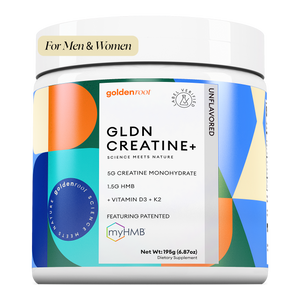Creatine supplementation is generally not recommended during breastfeeding unless specifically approved by a healthcare provider. Research on its safety while lactating is limited, and some studies suggest it may raise creatinine levels in breast milk, which could potentially impact an infant’s kidney function. Many moms ask, “Is creatine safe while breastfeeding?” or “Can you take creatine while breastfeeding?”
Here's an overview of current insights into creatine's safety and potential benefits for pregnant and breastfeeding women.
##creatine-calc
What Is Creatine and How Does It Work?
Creatine is primarily synthesized within the body (liver, kidneys, and pancreas) and stored predominantly in skeletal muscles and the brain.
It helps regenerate adenosine triphosphate (ATP), the primary energy currency of cells, facilitating energy supply during high-demand activities.
While commonly associated with athletic performance, creatine's role in cellular energy metabolism has implications beyond sports, including potential support for neurological and maternal health.
Read more: how long does it take for magnesium to work
Is Creatine Safe During Pregnancy?
Research into creatine supplementation during pregnancy is ongoing.
Animal studies suggest that maternal creatine supplementation may protect fetal organs, including the brain, from hypoxic injury during labor complications.
However, human studies specific to pregnancy are limited. While preliminary data are promising, creatine is not officially approved for use during pregnancy or breastfeeding.
FDA Status: The U.S. Food and Drug Administration (FDA) does not specifically approve dietary supplements like creatine for use during pregnancy.
Therefore, pregnant individuals must consult healthcare providers before starting any supplementation.
“Any supplementation should be approached with caution and under medical supervision.”
Read more: how much water to drink with creatine
Potential Benefits of Creatine for Pregnant Women
-
Enhanced Cellular Energy: May help alleviate fatigue and support muscle function during pregnancy.
-
Neuroprotection: Animal studies indicate potential in protecting the fetal brain from oxygen deprivation during birth.
-
Muscle Health: Could assist in preserving muscle mass during pregnancy.
Disclaimer: “This information is for educational purposes only and does not substitute professional medical advice.
Always consult and check with a doctor before starting any new supplement regimen during pregnancy.”
Read more: The Synergistic Benefits of Combining Creatine and HMB for GLP-1 Users
Risks and Concerns: Can Creatine Harm the Baby or Mother?
-
Limited Long-Term Data: Human studies on creatine use during pregnancy are sparse, making it difficult to fully assess long-term safety.
-
Kidney Function: While creatine is generally well-tolerated, individuals with pre-existing kidney conditions should exercise caution, as excess creatine is excreted through the kidneys.
-
Potential Side Effects: Some users report water retention and gastrointestinal discomfort.
Note: “Given these considerations, self-prescribing creatine during pregnancy is not recommended. Consultation with a healthcare provider is essential.”
Can I Take Creatine While Breastfeeding?
Creatine is naturally present in breast milk, reflecting maternal blood levels. However, there is a lack of comprehensive studies evaluating the effects of supplemental creatine on nursing infants.
Some anecdotal reports suggest potential concerns, such as alterations in infant kidney function markers, but conclusive evidence is lacking. Therefore, it's advisable to consult a pediatrician before considering creatine supplementation during breastfeeding.
Read more: Creatine: Not Just for Muscles, A Boost for Your Brain Too
Best Type of Creatine If Approved by Your Doctor
-
Creatine Monohydrate: This is the most largely studied and and prevalently utilized variant of creatine.
-
Avoid Blends or Pre-Workouts: These may contain additional stimulants or untested compounds that are not recommended during pregnancy or breastfeeding.
-
Third-Party Tested Products: Opt for supplements that have been independently tested for purity and quality.
Natural Alternatives to Creatine for Pregnant Women
-
Protein-Rich Foods: Incorporate sources like eggs, lean meats, tofu, and legumes into your diet.
-
Approved Supplements: Focus on nutrients essential for pregnancy, such as iron, magnesium, DHA, and choline.
-
Lifestyle Factors: Maintain adequate hydration, ensure sufficient rest, and engage in strength training exercises as approved by your healthcare provider.
Conclusion
Creatine holds promise for supporting energy metabolism and muscle function, which are critical during pregnancy and postpartum recovery.
However, due to limited human studies, its use during pregnancy and breastfeeding should be approached with careful consideration and caution.
Commit and focus on a balanced diet rich in essential nutrients, and consult healthcare professionals before considering creatine supplementation.



